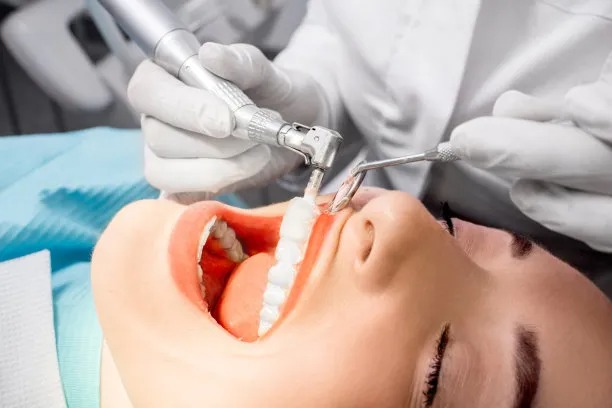Summary: Root canal treatment is a critical procedure used to save infected or damaged teeth while ensuring optimal dental health. This article provides essential precautions and tips to make the procedure safe and effective. By understanding the complexity of root canal treatment and actively managing pain, choosing an experienced dentist, and adhering to aftercare instructions, patients can expect the best possible outcome. The four primary aspects discussed include pain management strategies, dentist selection criteria, hygiene and sterilization practices, and post-treatment care guidelines. Each section highlights important considerations that contribute to a successful root canal experience.
1. Pain Management Strategies During Treatment

Pain management is vital when undergoing root canal treatment. Dentists typically use local anesthesia to numb the area around the affected tooth, ensuring the patient remains comfortable throughout the procedure. Understanding the various anesthesia options can help patients feel more in control. This awareness allows them to communicate preferences and expectations with their dentist before the treatment.
In addition to local anesthesia, patients can also consider sedation options. Sedation dentistry is an effective approach for individuals with dental anxiety or phobia. Sedatives can help ease nervousness and promote relaxation, ensuring a more pleasant experience during the root canal procedure.
Post-treatment pain is normal, and managing it effectively is crucial. Dentists usually recommend over-the-counter pain relievers like ibuprofen or acetaminophen. Patients should follow dosage instructions and consult their dentist if pain persists beyond a few days. Proper pain management contributes to a successful recovery and enhances overall comfort.
2. Choosing an Experienced Dentist for the Procedure
Selecting an experienced dentist or endodontist to perform root canal treatment is one of the most crucial decisions a patient can make. Researching the dentists credentials, experience, and reviews can provide deep insight into their expertise. A qualified professional should have a strong educational background and demonstrated proficiency in similar procedures.
Moreover, patients should not hesitate to ask questions during the initial consultation. Inquiring about the dentist’s success rates or their approach to complex cases can help build confidence in their ability to handle the treatment safely and effectively. It’s essential to feel comfortable and assured while under the care of a qualified professional.
An important factor to consider is technology and methods used by the dentist. Modern dental offices often employ advanced equipment such as digital X-rays and rotary endodontics, which can increase upon both comfort and effectiveness. Patients should be diligent in selecting a practice that invests in up-to-date technology and techniques.
3. Hygiene and Sterilization Practices in Clinics
Ensuring proper hygiene and sterilization practices are in place is paramount for safe root canal treatment. Infection control procedures should adhere to strict guidelines set forth by public health authorities. Patients can request information about sterilization protocols from their dentist to ensure safety standards are met.
Dental instruments must be thoroughly sterilized before each use to prevent cross-contamination. Clinics should utilize autoclaves and other sterilization techniques to guarantee that all tools are free of harmful pathogens. Observing these practices instills confidence in patients about the overall safety of their treatment environment.
Additionally, the dentists adherence to personal protective equipment (PPE), such as gloves, masks, and eyewear, emphasizes a commitment to maintaining a safe clinical environment. A hygienic atmosphere mitigates the risk of infection, crucial to the success of root canal therapy.
4. Following Post-Treatment Care Guidelines
Following post-treatment care guidelines is essential for recovery after a root canal procedure. Patients should adhere closely to their dentists recommendations regarding medication, including antibiotics or pain relievers, to reduce the risk of complications and promote healing. Ignoring these instructions can lead to discomfort and setbacks in the recovery process.
Dietary considerations also play a pivotal role in healing. Patients should avoid hard, chewy, or sticky foods for a specific period. Soft foods and liquids can ease discomfort and prevent damage to the treated tooth. Following dietary restrictions helps ensure a smooth recovery transition without unintended risks.
Lastly, maintaining good oral hygiene during recovery is crucial. Gently brushing and avoiding the treated area initially allows for healing while still caring for the surrounding teeth. Regular dental check-ups will ensure long-term success and optimal dental health following root canal treatment.
Summary:
In conclusion, essential precautions and tips for safe and effective root canal treatment significantly impact dental health. Pain management, the selection of an experienced dentist, hygiene protocols, and adherence to post-treatment care are all paramount for a successful outcome. Each step plays a crucial role in ensuring that patients recover smoothly and maintain optimal health.
This article is compiled by Vickong Dental and the content is for reference only.
Vickong Dental
Vickong Dental is a large medical group established in Hong Kong in 2008 by professors from well-known medical universities in Guangdong and Hong Kong, as well as medical doctors from key national '985' universities (including Master's supervisors and senior professors). The chain of branches brings together expert dentists with PhDs and Master's degrees from Hong Kong and Mainland China, committed to providing high-quality dental treatment.
"Vickong Dental Practices the University Motto of 'Healing and Serving Society,' with a Stable Operation for Sixteen Years. It Has Been honored with Hong Kong Enterprise Leaders's Choice,' and is a Global Trusted Implant Center for the Nobel Implant System. Recommended by Hong Kong Metro Broadcast and Guangdong Television, it Serves Customers from Over Thirty Countries and Regions, Gaining the Trust and Favor of Citizens from the Guangdong-Hong Kong-Macau Greater Bay Area and Surrounding Cities.

Thousands of customers' unanimous praise
The most recognized and highly recommended dental service by customers in the Guangdong-Hong Kong-Macau Greater Bay Area
We Ensure You Receive Detailed Care and Attention Here
Hong Kong standards, Shenzhen prices, Your Trusted English-speaking dentists

Vickong Dental Medical-Grade Instrument Disinfection Process
Vickong Dental Medical-Grade Instrument Disinfection Process

Vickong Dental Chain: A Warm and Comfortable Environment for Treatment






Appointment Hours

Q&A
Why choose Vickong Dental?
Vickong Dental practices the university motto 「Medicine to Benefit Society」, with each branch bringing together highly qualified dentists with doctoral and master’s degrees from Hong Kong and the Mainland, and has maintained seventeen years of steady operation。Recipient of 「2024 Hong Kong Enterprise Leaders Brand」, 「2025 Hong Kong Enterprise Leaders Brand」, a Nobel Biocare Global Trusted Implant Center, and a brand recommended by Metro Radio Hong Kong and Guangdong TV。
To date, we have served customers from more than thirty countries and regions,earning exceptionally high word-of-mouth recognition and trusted recommendations from residents across the Guangdong-Hong Kong-Macao Greater Bay Area and surrounding cities
We have eight major branches in Zhuhai、Shenzhen,and a consultation and service assurance center in Hong Kong,so you can book a free consultation at any time for any questions,which is very reassuring.
If I do not accept the quotation after the CT scan, will I be charged??
No! As long as the actual treatment has not started, you will not be charged any fees.
Will there be any additional charges during the treatment process?
No, there won’t be any additional charges. Before treatment begins, we will clearly explain the treatment plan and its corresponding fees. Only after the patient agrees and signs the consent form will we proceed with the dental service.
Can I pay in Hong Kong dollars?
Yes. Vickong Dental accepts payment in Hong Kong dollars. The amount will be converted based on the exchange rate of the day, and the applicable rate will be clearly communicated to you in advance.
Can I reschedule my appointment at any time?
Yes. Please contact us via **WeChat** or **WhatsApp** as early as possible, providing your original appointment time and details, along with your preferred new date and time slot for rescheduling.













